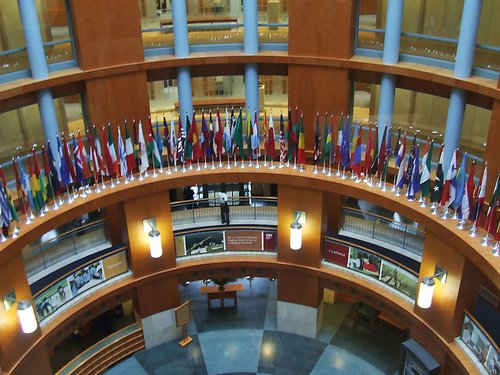Jan. 16, 2014 – Raj Banerjee
Just last month, something incredible happened in Indian politics. The Aam Aadmi Party (AAP), a year-old political outfit borne out of a massive anti-corruption movement, took charge of the city-state of Delhi, home to India’s capital. Aam Aadmi means “common man” in Hindi; the acronym “AAP” means “you.” AAP’s leader, Arvind Kejriwal, a 45 year-old former engineer and tax man, spent much of 2013 pitting his common man persona against Delhi’s entrenched political leaders. Now, he finds himself the chief minister of Delhi.
AAP’s remarkable success and soaring popularity have shaken Indian politics, because they have highlighted a powerful anti-corruption sentiment across the country. At the same time, AAP struggles to define and mold that anti-corruption sentiment. This should not be a surprise to anybody who has studied corruption –academics still struggle to construct a working definition; and what is corrupt behavior often depends as much on the context as the act. AAP’s vision of a corruption-free India requires going after petty policeman and government officials, high-ranking bureaucrats and politicians, and businesses big and small. That is a lot of enemies for a fledgling political party to make. At the same time, if AAP picks its targets strategically, it will fall afoul of its own absolutist anti-corruption manifesto.
Add to this the complications of politics and governance. Despite its success in Delhi, AAP does not hold the majority of seats in the state 70 member legislative assembly. To survive, the Delhi AAP government relies on the Congress party; and as a young party, AAP needs its government in Delhi to show the country that it can deliver on its promises. At the same time, AAP cannot go soft on corrupt Congress leaders in Delhi, especially given how highly critical it has been of that corruption scandal-ridden party.
The month-old AAP government in Delhi must also realize that what makes for a good, populist movement does not necessarily make for sound policy. Mr. Kejriwal recently declared that Delhi would not allow foreign multi-brand retailers (such as Wal-Mart) to set up shop in his state. This policy has nothing to do with corruption. It was meant to be a handout to small local retailers, a large number of whom supported AAP in the Delhi elections. However, it leaves the large Delhi retail market open to massive Indian retailers, who can do just as much damage to small business. Mr. Kejriwal’s announcement also cuts against his own anti-corruption stance, as it benefits local companies subject to far less extensive corporate integrity and anti-corruption safeguards than their large Western counterparts.
AAP has done a remarkable job tapping into India’s anti-corruption sentiment. It continues to enjoy tremendous support across the country, and is growing beyond Delhi. Other anti-corruption movements and political parties around the world should take notice of its success. Nevertheless, the party will find it incredibly challenging to shape its anti-corruption vision from a position of power.




